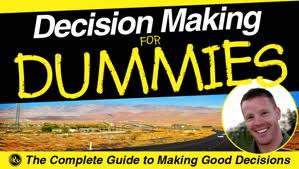The Simplicity of The Twelve Steps- Step Three (Faith)
It is unreal how many people in A.A. are under the impression that the 3rd Step requires the alcoholic to have some idea how to turn their will and life over to God. Wayward souls depressed that movement beyond Step Three is beyond their purview because they have no idea how to achieve this task. One after another bemoaning, “I don’t think I’m doing this right. I’m having so much trouble turning my will over. How do you do that? How would I know if I’m doing it right?”
Why need it be so arduous for them to find a competent sponsor to tell them, “The book is not asking you to do any such thing. You don’t know how to turn your will and life over to God because you are wholly incapable of doing so. You are blocked from accomplishing this. It isn’t until the next step that we are even going to examine what is blocking you and you are four steps removed from the process of any of those blockages being removed.
All you are being asked to do is make a decision. Making a decision to do something and actually doing that something are separate activities. If you were to make a decision right this moment to get your PhD, would you all of a sudden have a degree in your hands? Of course not.
The decision at hand will be presented to us in short order. In advance of that, though, we will turn to page 62 to find out what the root of our problem is. The problem, we now understand is lack of power (as dictated on page 45). This paragraph will clue us in to the key element which has been driving the problem:
“Selfishness – self-centeredness! That, we think, is the root of our troubles. Driven by a hundred forms of fear, self-delusion, self-seeking, and self-pity, we step on the toes of our fellows and they retaliate. Sometimes they hurt us, seemingly without provocation, but we invariably find that at some time in the past we have made decisions based on self which later placed us in a position to be hurt.”
Curious how any member of Alcoholics Anonymous could possibly read that paragraph and then turn to a newcomer proclaiming, “This is a selfish program.”
- Page 20, paragraph 1: “Our very lives, as ex-problem drinkers depend upon our constant thought of others and how we may help meet their needs.”
- Page 97, paragraph 2: “Helping others is the foundation stone of your recovery. A kindly act once in a while isn’t enough. You have to act the Good Samaritan every day, if need be.”
- · Page 14-15: “For if an alcoholic failed to perfect and enlarge his spiritual life through work and self-sacrifice for others, he could not survive the certain trials and low spots ahead.”
One clearly could not solve the deadly problem of selfishness with a selfish program. This is a selfless program. And it is critical that the prospect understand that service to their fellow man will be the chief undercurrent of their recovery.
And now we come to our choice. In Step One we have given the prospect a clear understanding of where they had been living. They may have understood that where they were living was miserable, but they now firmly grasp that they have been living as the victim of a hopeless state of mind and body. Correspondingly, they need to understand that they most definitely have the choice to continue living there. We must remember that if they decide that they have research to do, it is an act of co-dependent abuse to attempt to block them from doing so. In Step Two, we have demonstrated that, previously unbeknownst to them, there is actually a different place where they can choose to live.
Step Three demands, “Choose!” Insanity or God? Hopelessness or salvation? Pitiful and incomprehensible demoralization or sunlight of the spirit?
If they choose Step One, our work here is complete. We let them know that we wish them well in their research and that should they come to find that their choice is not serving them, we will be more than happy to re-engage the work when they are ready. If they choose Step Two, than it is time to declare to themselves, to us and to God, the conclusion that they have reached:
“God, I offer myself to Thee-to build with me and to do with me as Thou wilt. Relieve me of the bondage of self, that I may better do Thy will. Take away my difficulties, that victory over them may bear witness to those I would help of Thy Power, Thy Love, and Thy Way of life. May I do Thy will always!”
As I have often found that newcomers have difficulty grasping what this prayer means, often paired with an aversion to all of the “thys” and “thous,” I will often offer them this alternate wording:
“God- I am giving you me. I don’t really know who the hell I am, so I don’t really know what I am giving you. I don’t really know who or what you are- I’m not even entirely sure that you are there. Regardless, I can see that my life is unmanageable because I am a lousy manager. So I am going to fire myself and hire you. I figure it’s a minimal risk as you couldn’t possibly screw my life up worse than I have. Whatever you put me here for, God, please show me- because I am completely lost. I am a prisoner of my own mind. When I run the show, it is a train wreck, but I can’t stop running the show. Relieve of this, so I can you let you do what I am asking you to do- which is to get in the game. As my difficulties become less difficult, help me see where help is needed, and let me provide that help your way, rather than my way where I always have an agenda or a motive.”
Our prospect has now completed their preparation for the program of action. They understand their problem, they understand their solution and they have made an affirmative declaration based on their understanding of both these things that they are prepared to bring the solution to light. The second to last sentence on page 63 explains:
“This was only a beginning, though if honestly and humbly made, an effect, sometimes a very great one, was felt at once.”
If the prospect is, indeed, feeling a measure of hope, or perhaps even a glimpse of God-consciousness, we want to let them know that this is the effect that the book is referring to. And while what they are feeling is beautiful, an effect is not a change. No change has occurred to this point. What’s more, the effect they are feeling is specifically designed to be just powerful enough to provide them with the wherewithal to move forward and do the work necessary for their recovery. Without that work, the effect will vanish as quickly as it showed up.





Latest Comments